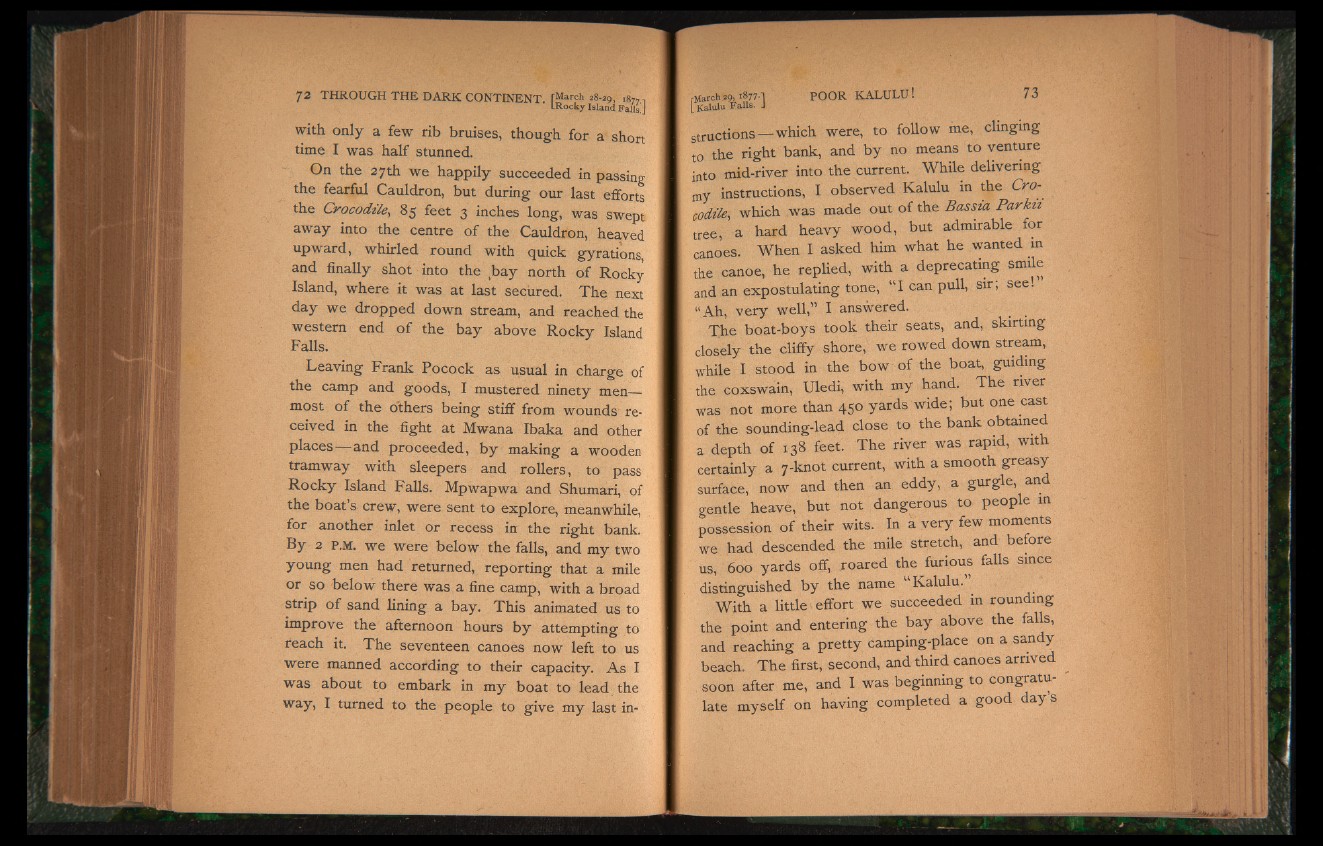
with only a few rib bruises, though for a short
time I was half stunned.
On the 27th we happily succeeded in passing
the fearful Cauldron, but during our last efforts
the Crocodile, 85 feet 3 inches long, was swept
away into the centre of the Cauldron, heaved
upward, whirled round with quick gyrations,
and finally shot into the tbay north of Rocky
Island, where it was at last secured. The next
day we dropped down stream, and reached the
western end of the bay above Rocky Island
Falls.
Leaving Frank Pocock as usual in charge of
the camp and goods, I mustered ninety men—
most of the others being stiff from wounds received
in the fight at Mwana Ibaka and other
places and proceeded, by making a wooden
tramway with sleepers and rollers, to pass
Rocky Island Falls. Mpwapwa and Shumari, of
the boats crew, were sent to explore, meanwhile,
for another inlet or recess in the right bank.
By 2 p .m. we were below the falls, and my two
young men had returned, reporting that a mile
or so below there was a fine camp, with a broad
strip of sand lining a bay. This animated us to
improve the afternoon hours by attempting to
reach it. The seventeen canoes now left to us
were manned according to their capacity. As I
was about to embark in my boat to lead the
way, I turned to the people to give my last inftforch
20)
[ Kalulu Falls. J
POOR KALULU! 73
structions— which were, to follow me, clinging
to the right bank, and by no means to venture
¡uto mid-river into the current. While delivering
ffly instructions, I observed Kalulu in the Crocodile,
which was made out of the Bassia Parkit
tree, a hard heavy wood, but admirable for
canoes. When I asked him what he wanted in
the canoe, he replied, with a deprecating smile
and an expostulating tone, “ I can pull, sir; see.
“Ah, very well,” I answered.
The boat-boys took their seats, and, skirting
closely the cliffy shore, we rowed down stream,
while I stood in the bow of the boat, guiding
the coxswain, Uledi, with my hand. The river
was not more than 450 yards wide; but one cast
of the sounding-lead close to the bank obtained
a depth of 138 feet. The river was rapid, with
certainly a 7-knot current, with a smooth greasy
surface, now and then an eddy, a gurgle, and
gentle heave, but not dangerous to people in
possession of their wits. In a very few moments
we had descended the mile stretch, and before
us, 600 yards off, roared the furious falls since
distinguished by the name Kalulu.
With a little effort we succeeded in rounding
the point and entering the bay above the falls,
and reaching a pretty camping-place on a sandy
beach. The first, second, and third canoes arrived
soon after me, and I was beginning to congratulate
myself on having completed a good day’s